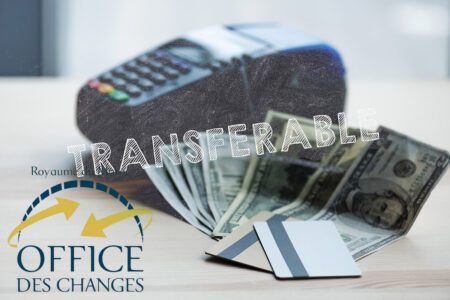We receive many requests for advice from people who want to be “in between”, working in Morocco without being resident there, or who are trying to retain the benefits granted to non-residents while still having their residence permit.
It’s very difficult, and except in very special cases, little by little you discover all kinds of little problems, which can become very big problems if something goes wrong or if there’s an inspection. The aim of this post is therefore to take stock of a number of issues, and to try to help you see more clearly the criteria for making a choice, where such a choice is possible. Or to give you a clearer picture of the risks you run if you decide to have a home ‘in the middle of the strait’.
Clearly, our advice is twofold:
- do things legally
- if your situation, particularly your tax situation, is a little complex, have it analysed by a tax expert who knows both sides of the Strait (this is a service we offer).
Resident in Morocco, the UK, the USA… what determines residency?
In practice, you don’t choose to be a resident or a non-resident. You choose a lifestyle, and that lifestyle determines residency. The “choice” is only possible in a few very specific, marginal cases.
Being resident in a country means having your usual place of residence there.
The generally accepted criterion, validated by numerous international conventions, is the six-month criterion. If you spend more than 183 days a year in a country, you are de facto resident there.
These 183 days need not be consecutive.
So many Europeans who take advantage of the three-month visa-free rule, pop over the Moroccan border for a few days, come back for three months, etc., are in fact residents without a residence permit. We’ll see what that means later.
Important detail: these 183 days are calculated over a calendar year.
Being resident in a country means having an economic connection there
In the not uncommon case of people who share their lives between at least three countries, it is quite possible that they do not spend 183 days a year in any one country.
In this case, we think in terms of an “economic connection” or “economic centre”: in which country does the person have the most assets (property, works of art, etc.)? In which country does he or she generate the most income? And finally, in which country do they live the longest, even if it’s less than 183 days?
What does not depend on the residence
Let’s start with what hasn’t changed! When you’re visiting a country, a certain number of rules apply, in particular everything to do with crimes, misdemeanours, traffic regulations…
What is linked to nationality
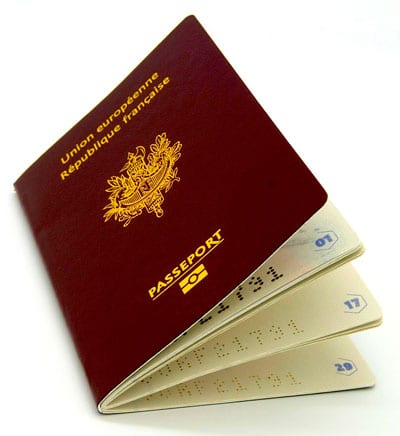
For example, whether you are resident in Morocco or in your country, the rules for an intermarriage remain the same, with only certain detailed formalities changing.
Strangely enough, whether you are officially resident in Morocco or not, the priority given to children of Foreign nationals for access to international schools applies in the same way (and fortunately so, given the number of children who go to school in a country where their parents are not resident!)
Defining crimes and offences
With rare exceptions, most offences are treated in the same way: murder, writing a bad cheque or speeding are always illegal, whether you are a resident or not.
However, the punishment may be different. The penalty may be harsher for non-residents, because they risk leaving the country, so they are more likely to be asked to pay their fine immediately or even put in preventive prison.
What changes when you become a Moroccan resident?
The change of residence involves:
- the possibility of working as an employee
- a change in tax status: you become taxable in Morocco by default
- a change in social security benefits: you lose certain European benefits, but receive Moroccan benefits
- much stricter exchange controls in Morocco
- the need to register your car immediately in Morocco
- depending on your nationality and the country(ies) where you have other income, a possible risk of double taxation
The opportunity to work as an employee
This is one of the direct consequences of being granted a residence permit. You have to go through the ANAPEC employment authorisation procedure (see our post on obtaining a residence permit and work permit).
If you are a resident without an employment contract (for example, because you have your own company, or because you married a Moroccan), this recruitment authorisation procedure is a formality, and the resident card is synonymous with the work permit.
As an employee, you are of course registered with the CNSS and contribute to Moroccan social security and pension schemes. You can also register with a dedicated insurance for expatriates in your country of origin, like the Caisse des français de l’étranger (CFE), if it exists.
Income is taxable in Morocco
By default, any income not linked to the rental of property is taxable in the country of residence.
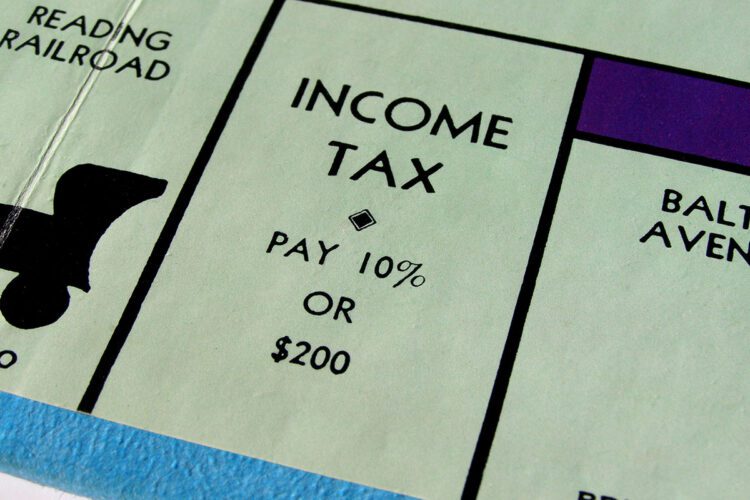
Pensions and retirement
Foreign pensioners benefit from an advantageous agreement which allows them to domicile their income in Morocco and to be taxed on it only in Morocco (no longer in their country of origin, since they are no longer resident), at an advantageous rate. However, each case must be analysed individually.This advantage depends of your nationality. Be aware also that switching country might imply changing status in your country of origin. For example if you were a foreign worker in Switzerland, you may even lose all your AVS pension rights if you become a Moroccan resident.
Income from work
Salaries are taxed in Morocco (with a deduction at source, incidentally).
If you are a self-employed entrepreneur, or if you work as an individual, it’s the same thing, except that you have to declare your income.
If you have a company, it will theoretically employ you and pay you a salary. You may also receive dividends, which are taxable in Morocco.
Beware, if you earn more than six thousand dirhams net per month, the income tax is quite high.
Other income
Other revenues will be:
- rental income from property, which is taxed in the country where the property is located and may also be taxed in Morocco if there is no agreement with the country of origin to avoid double taxation
- dividends, income distributed by your company, with the same problems
- capital gains on the sale of property, or capital gains on financial investments
- miscellaneous income, such as royalties
All of this income is therefore theoretically taxable in Morocco.
Change in social benefits
A large number of social benefits are subject to a residence criterion
In most European countries, this is the case for :
- social security
- most supplementary schemes
- supplementary benefits that are more a matter of solidarity, such as certain allowances for the disabled.
As far as social security and supplementary schemes are concerned, some private insurances allow you to remain in scheme of your country of origin, for both social security benefits and pension contributions. On the other hand, family ‘solidarity’ allowances are simply no longer paid when you are resident abroad (but you do get them back when you return to your country).
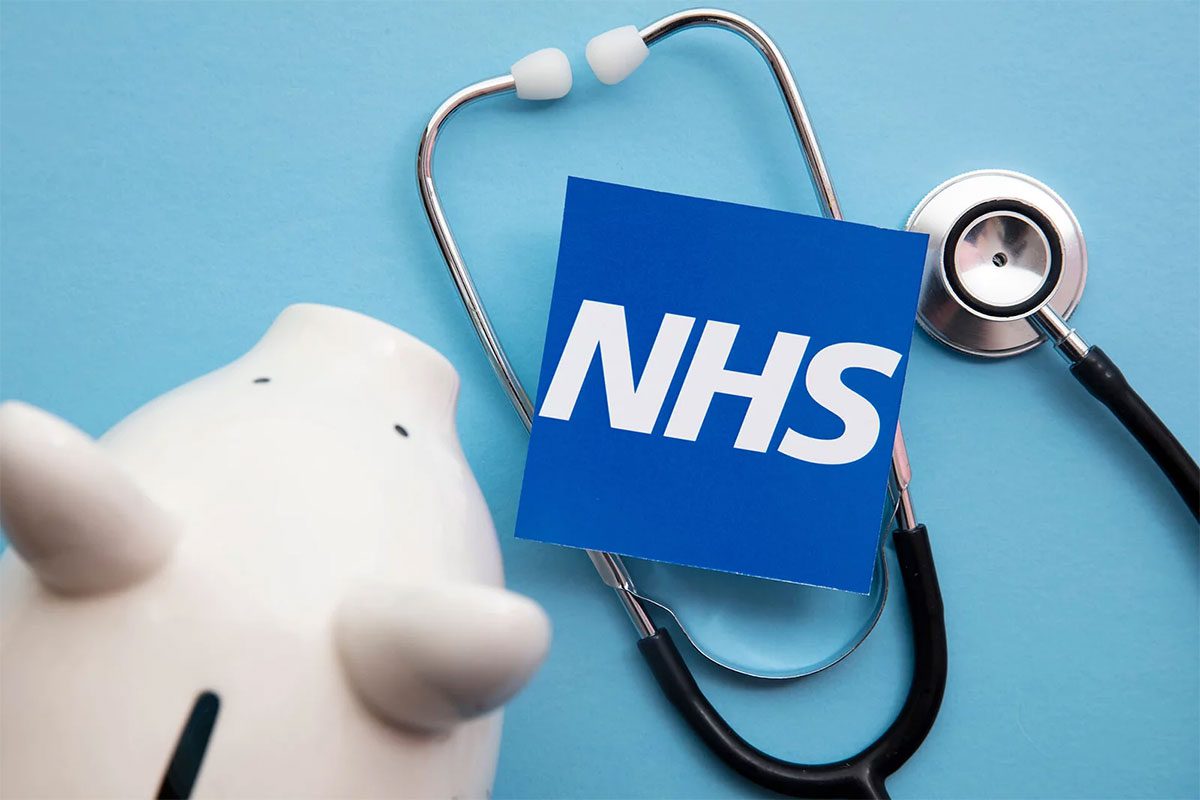
Moroccan social benefits are less attractive
In particular, for pensions, it is advisable to continue paying contributions in your country of origin. For the rest, by taking out supplementary insurance, whether in your country of origin or locally, you will be very well covered.
The risk of making a false declaration
It is obviously tempting, especially if you are an ‘undeclared’ resident (someone who crosses the border every three months), not to inform the social security system in your country of origin of your long-term absence.
As long as things are going well, there’s no problem. But :
- if you are regularly reimbursed for Moroccan benefits, especially benefits that do not correspond to what a tourist would claim
- if you have an accident or serious illness that requires expensive treatment
there is a big risk that the social security authorities will investigate and refuse to reimburse yo.
Stricter exchange controls for residents
This is undoubtedly one of the most unpleasant discoveries that Europeans arriving in Morocco can make, especially young people who have forgotten that all European countries also had exchange controls. Compared to the freedom of Europe, Morocco is a fortress.
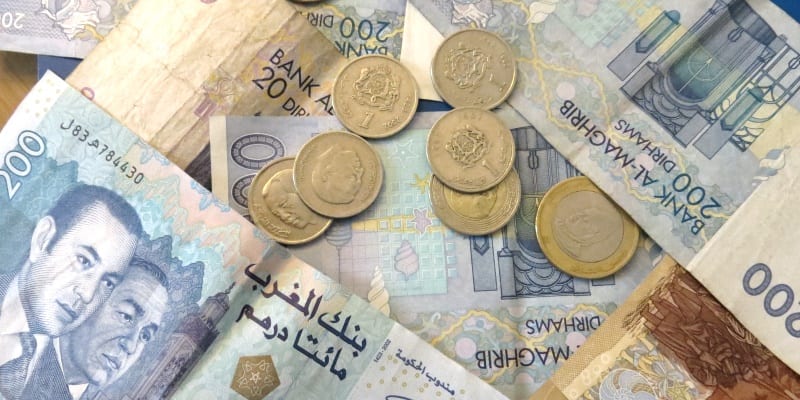
The principle: the dirham is not convertible, and cannot leave Morocco.
Non-residents are free to open a bank account, in which case it will be “convertible” (they can get their money back, in euros or in the currency of their choice, as they wish).
To respect the non-convertibility of the dirham, this means that it is impossible to deposit dirhams into a convertible account. The account can only be funded by foreign currency payments from abroad (for cash payments in euros, this is possible within a fairly short time limit following entry into the country, and on production of the declaration of foreign currency imports made to customs).
Conversely, foreign residents cannot “take out dirhams” (i.e. convert them) as they wish. Conversion of dirhams into another currency is subject to authorisation by the Foreign Exchange Office. If procedures are facilitated for companies involved in import-export, they do exist.
For private individuals, however, it is more complicated, as proof must be provided of the origin of the funds and that they have been subject to Moroccan tax. This is a classic case when selling property.
What are the risks?
Morocco takes exchange controls very seriously. On the other hand, in the case of black market transactions, particularly in real estate, while it is always possible to set up systems with payments made directly between two foreign bank accounts, it should not be forgotten that :
- as a result of the illegal transaction, both buyer and seller lose virtually all right of recourse (as we explained in relation to tenancy agreements between foreigners)
- the transfer of ownership can be contested in Morocco, because the sale price seems abnormally low
- overseas, the bank or the tax authorities may ask for the origin of the funds, and this is generally the start of a difficult period of checks and inspections…
The car… the icing on the cake!
Importing a foreign car into Morocco is quite expensive because of customs duties (we’re preparing a full post on this too).These are clearly protectionist measures, and they work well, as Morocco is carving out an increasingly large share of the automotive industry. Customs duties are lower for new cars imported into Morocco (and therefore sold by Moroccan dealers) thanks to agreements with Europe.
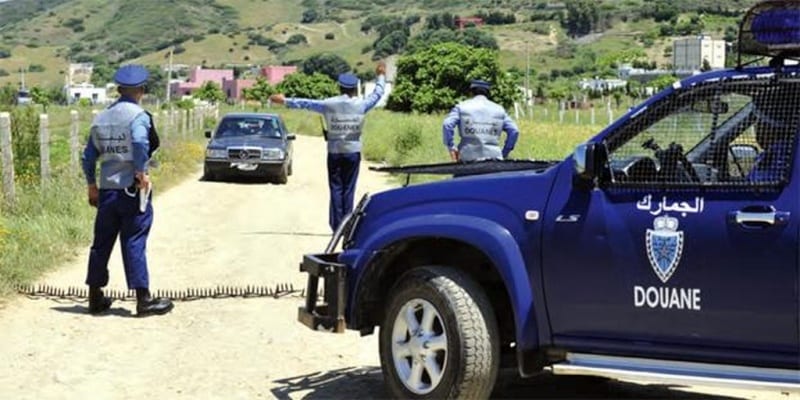
The use of foreign cars by non-residents
Non-residents may use their car for six months of the year, on one or more occasions. This is a calendar year, not six months out of a 365-day period. From the first day of the seventh month, the car must be either:
- repatriated abroad
- placed under customs control, i.e. stored in a customs warehouse. The customs authorities have the key, and storage is not free of charge
- cleared through customs and registered in Morocco
This limitation is linked to the number plate. The registration number is recorded on your passport and on a computer register. There is no real way of avoiding it (and beware: in the event of a serious accident, scrapping the car will pose a problem, as it will still have to be cleared through customs).
Furthermore, non-residents with no fixed address in Morocco cannot register a car in their own name.
There are only three ways of owning a car for twelve months of the year:
- have two cars, each of which spends six months in Europe
- hire a car on a long-term basis through a company
- have a Moroccan friend who buys the car and lets you drive it
The use of foreign cars by a resident
Here it’s even simpler: a resident is not allowed to drive a foreign-registered car in Morocco, and must immediately clear his or her own vehicle through customs.
It’s a subject on which the police take a very serious approach in the event of a check. And, as in Europe, customs have the right to check you anywhere in Morocco.
Insurance is also one of the services linked to a residence criterion. To put it plainly, this means that your green card is no longer valid and that you are driving without insurance, in Europe as in Morocco. I’ll leave you to assess the consequences in the event of a serious accident with injuries…
In conclusion, how can you generate professional income without being resident in Morocco?
For one-off, exceptional income, invoice from a foreign company and get paid in foreign currency. It will take some time for your Moroccan customer to obtain the agreement of the Foreign Exchange Control, but it is the best solution.
For regular income, set up a company in Morocco that will collect in dirhams. Give it an import-export business, to make it easier to open a convertible account, and invoice it for services provided by a foreign company. These invoices should be realistic, and should not reduce profits to zero. This solution is more expensive, since you will have to domicile the company and pay an accountant and tax, but it is the only one that is really viable if you do not wish to become a resident.
 A typo or syntax error? You can select the text and hit Ctrl+Enter to send us a message. Thank you! If this post interested you, maybe you can also leave a comment. We'd love to exchange with you !
A typo or syntax error? You can select the text and hit Ctrl+Enter to send us a message. Thank you! If this post interested you, maybe you can also leave a comment. We'd love to exchange with you !

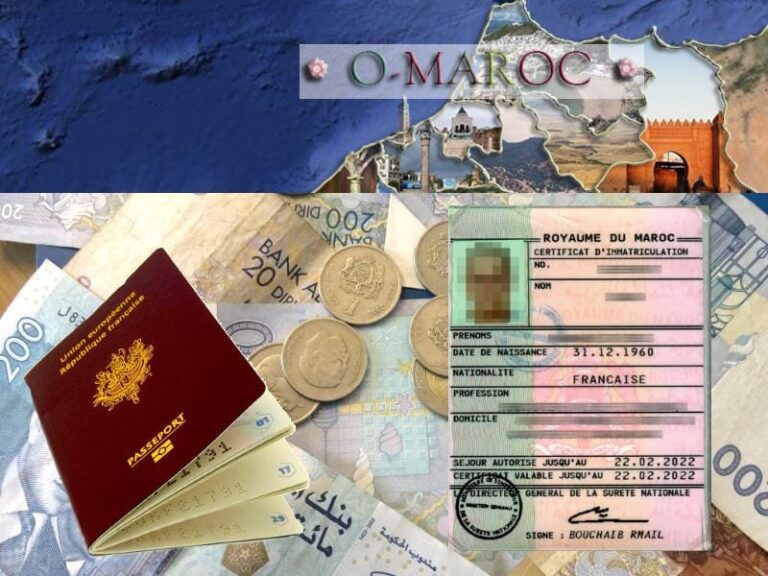
 Switzerland
Switzerland